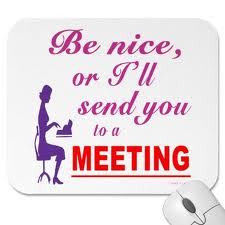Really?
So basically what you are saying is that you will mess with your physical being, your energy, and your metabolism because you have the need to stuff your face.
I understand it is hard to control yourself when its all there in front of you, when there are chocolate baskets everywhere around the office, when people are in happier mood and tend to bring in more snacks than usual (translation: left over stuff they don't want their families eating), when a vendor sends that basket of fine Godiva goodness, and since your boss can't take it home, they put it out for the team. But where's your control? Where's your "I probably should not eat the entire bar of chocolate after a full lunch" instinct.
Don't have one? Fine. Here are some tips:
If You Really Wanted It...: Admit it. If it wasn't the holidays, and you were craving chocolate, you'd just go and buy a chocolate. And you'd enjoy it more. You have the access and the means. Sure, it will cost you $3.99 to get that giant bar of Godiva (Source: Godiva), but if you are craving it, it will become a treat.
 And since you will be spending $3.99, you will think twice, and will look at the nutrition factors (and realize that each serving is 220 calories) and hopefully not buy it.
And since you will be spending $3.99, you will think twice, and will look at the nutrition factors (and realize that each serving is 220 calories) and hopefully not buy it.Yes, the one in front of you is free, but free doesn't mean you have to put it in your body. But hey - go ahead, eat the whole thing. Then go out and jog to burn it off (it generally takes a 150 lb person 27 minutes of jogging to burn 220 calories... jus' saying).
Drink Water: Water makes you feel full. And water helps curb cravings. And water is good for you. So drink water. Take a sip - it will do you good.
Eat Before you Go: Going to a party? Eat at home. Yes, it is counter intuitive, but when you eat at home, you will think about what you are eating, you will not (hopefully) stuff your face with deep fried foods, and hence end up eating healthy. When you get to the party, you won't be starving, which will help you curb your intake.
 Don't Follow the Crowds: People go to weddings and parties, and line up for food. As if, that's the only opportunity they will get to eat any food for the week. Chill out. Nurse that drink a little longer - when you have been standing in line for a longer period of time, you tend to over-fill your plate. After all, who wants to come back and stand in line again?
Don't Follow the Crowds: People go to weddings and parties, and line up for food. As if, that's the only opportunity they will get to eat any food for the week. Chill out. Nurse that drink a little longer - when you have been standing in line for a longer period of time, you tend to over-fill your plate. After all, who wants to come back and stand in line again? Stop it. You are not a pirate out for loot - there's plenty of food. And even if you don't eat much at the party, you will eat better and in a more measured way when you get home anyway. So chill, relax, enjoy your drink, and let the crazies attack the food.
If all else fails and you just end up eating till you are ready to throw up, don't pretend like you care about the calories. Don't say stuff like "oh man, this is so bad. I really shouldn't be eating this" while stuffing your face. Just eat it. Enjoy it. No regrets. You can always up the pants size.


















